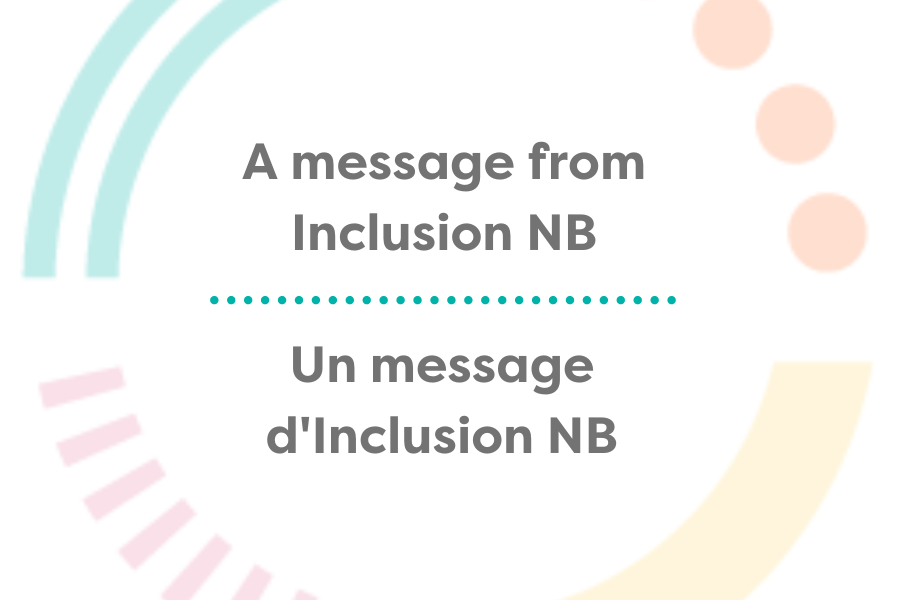
Giving Up is Not an Option
All children deserve an education and to belong in their neighbourhood school. Any parent with a school-age child has undoubtedly received a call mid-day to pick their child up from school because they are ill. Imagine if this was an everyday occurrence, or even an expectation. We are hearing from many families, across the province, who live this reality. They cannot work. And, students cannot thrive if they are not in school, learning alongside their peers.
New Brunswick’s Child and Youth Advocate recently released a report: A Policy of Giving Up, which highlights a growing problem in New Brunswick, partial day plans. A partial day plan, simply put, is the incredibly disruptive practice of repeatedly dismissing children from school with no learning services being provided. The Advocate rightly categorizes this growing practice as illegal.
This harmful approach is impacting hundreds of New Brunswick families and does not align with the principles outlined in the Department of Education and Early Childhood Development’s Inclusive Education policy, the rights of students under the Education Act, or the UN Convention on the Rights of People with Disabilities.
New Brunswick is widely recognized for its national and international leadership in inclusive education. Sending students home doesn’t help children learn, instead undoes years of progress. Inclusion is not selective.
The Advocate specifically says, ‘The children who are being sent away from school for part or all of the day are often those who it is hardest and most expensive to educate. They may need intense services, they often require considerable patience and work from school staff, and the services they would require outside the classroom may not be provided for in School District budgets. Often, these pose problems that are hard to solve, and there will always be a human temptation to avoid solving difficult problems. However, we must never fall into the trap of making children disappear because they challenge the adults in the system. In fact, the children who test us the most often need us the most.’
The matter at hand is a resourcing issue, not an inclusion issue. Timely and effective resources must be available to teachers, schools, parents, students, and the greater community. This includes training for educators and other professionals, and access to specialists such as speech language pathologists and school psychologists.
Classroom Composition
More and more, we are hearing the term classroom composition. This, as is often the case with many concepts that surround inclusive education, places the blame on the child. The foundation of a sound inclusive education system is the design and delivery of education programming where all students can learn together. Requirements for prerequisite skills for some students to join their peers are problematic because it places the onus on the student
to prove that they belong in the classroom. This could keep students segregated for extended periods. We need to stop defining classroom composition as the diversity of backgrounds and perceived skills the students arrive with. Instead, it needs to be about the diversity of resources and teaching methods we bring to our students. It’s their classroom, after all.
We also need to explore creative strategies such as co-teaching models, where two teachers can support each other and the needs of their students in the classroom. Smaller classrooms would be a huge step forward in supporting our educators. We have seen significant progress in schools where there are adequate, diverse supports in the form of qualified, multi-disciplinary, trained professionals.
Every child in New Brunswick has a right to an education. Creating an environment where behaviour determines eligibility is akin to failing students for writing a test in pen when no pencil existed in the classroom. We have an Inclusive Education policy that allows for flexibility to have the child take a break and leave the classroom if necessary. There must always be a collaborative plan between the school and the family to see the child return to learn alongside their peers.
Sending children home should never be an option, and neither is giving up.
– Jake Reid, Executive Director of Inclusion NB
